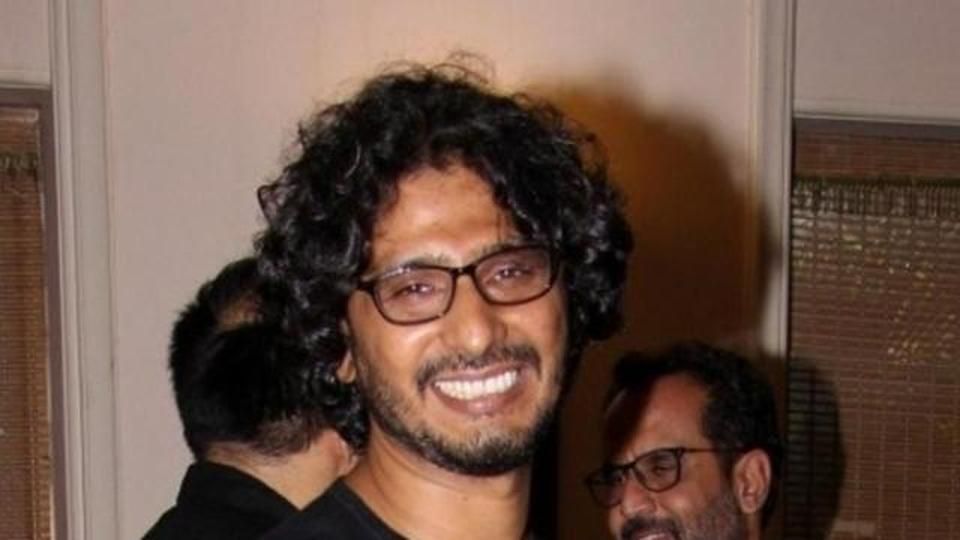Unlike theatrical release, I am okay with cuts for TV screening: Abhishek Chaub...

Much like its theatrical release, the TV premiere of Shahid Kapoor-Alia Bhatt-starrer Udta Punjab has faced the brunt of the censor’s scissors . Director Abhishek Chaubey, however, has expressed his gratitude towards the Central Board of Film Certification (CBFC).
The world television premiere of Udta Punjab is scheduled on &pictures on April 30.
Claiming that he accepted the cuts suggested for television viewing, Abhishek said, “I completely accept the kind of cuts that have been asked for the telecast as opposed to what had happened for the theatrical release. In theatres, there is a provision where only the adults could walk in and when that is happening, we should have the ability to express ourselves in the best interest of the film. But as far as television is concerned, it is a different medium, accessible to every walk of life and every age group. As a film-maker, I am responsible enough to understand that the contents of my film can’t entirely be shown to a child. So the kind of cuts that were asked for TV viewing were truly acceptable to me.”
Speaking on having portrayed Punjab as the land of drugs, while the state is known for music, farmers and happiness in Bollywood, he said, “I did not have any intention of changing the image or portrayal or show Punjab in a different manner. I think if a film-maker talks about a problem prevailing in a particular area, he is talking out of a lot of love and concern. Since I love Punjab and care for it, I made the film. Those who deny the existing situations or hide the problems are people who do not love the state. So I consciously did not go out to change the image of Punjab and I shot Punjab for what it is. I took a big risk in shooting the film predominantly in Punjabi but I did that because when I met the people in Punjab, I thought to capture the authentic language and the dialect of the people so that the film looks real and not a fantasy. I shot it for what it is!”
Asked whether he cast Diljit Dasanjh to target the Punjabi audience, Abhishek said, “Not really. After, Shahid, Alia and Kareena were on board, we were still searching for someone to play Sartaj. Then somebody told me about Diljit. He usually does comedy films so I was hesitant but when I saw Punjab 1984, I knew that he had the potential for dramatic acting as well. I spoke to Kareena and she was also open to work with him. It was a fresh pairing. But I was still in two minds till he walked into my office to meet me. Within ten minutes I had found my Sartaj. Diljit belongs to Ludhiana and is extremely close to his roots. He is very real and brought a palette of authenticity to the film.”
“When Sudip and I were writing the script, it happened very organically. Neither did we force it nor were we trying to act smart or cool. . Alia was this extremely poor girl, lives on the margin of the society she doesn’t belong to, barely earns enough to keep her body and soul intact and hardly has any friends. Her sorrow state deepens when she chances upon that world of drugs. At that point too, the character is interacting with people she doesn’t know. She is a nobody; and nobody cares for her. She just wishes to be somebody but ends up being a nobody. There was no situation in the film that led us to write her name. There is nobody who cared enough to call her by a name. It just happened,” he said about Alia Bhatt’s character.
“I don’t know if cinema really changes the world. It just makes people aware of what is happening in our neighbourhood. Movies, at times are a truer representation of reality than TV or newspapers. Cinema is not just a repository of information but also gets into the personal and emotional lives of people who are affected by a problem. Our duty was to represent the problem in all its dimensions and tell a human story about it. When the film came out, it did very well in Punjab which means people somewhere connected with what we were trying to say and they wanted to see all that was going on,” he added.
Released on June 17 last year, Udta Punjab opened to mixed reviews and bagged several awards.






